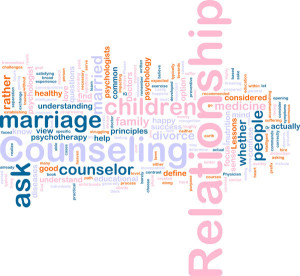‘Holding onto resentment is like drinking poison and expecting the other person to die.’
When you’re feeling disappointed, angry or betrayed, the idea of forgiving someone can feel a little bit like giving in – as if, by letting go of your resentment, you’re allowing them to ‘get a way with it’.
way with it’.
 way with it’.
way with it’.
It can be more tempting to hang onto negative emotions – acting distant and frosty as a way of punishing the person who has upset you. It’s not unusual to feel this way. Working through these kinds of difficult feelings can take some time. But forgiveness is a bold step in the right direction. It involves you being able to make a deliberate decision to put your partner’s transgressions – or perceived transgressions - behind you, so you can both move forward together.
Why forgive?
I’m sure you’ve heard clichés such as ‘not harbouring a grudge’ or ‘being the bigger person’. Well, in theory it might all seem straight forward, but, as we all know, forgiveness can be tricky.
It involves you allowing yourself to be vulnerable. Forgiving someone means letting go of your anger and letting go of the ‘moral high ground’. It can also be difficult as it may involve having to consider how you yourself contributed to the problem. Although it’s tempting to imagine ourselves as completely in the right when it comes to disagreements, there’s usually two sides to any argument.
There’s a famous quote that goes: ‘Holding onto resentment is like drinking poison and expecting the other person to die.’ Forgiveness isn’t just about retaining harmony in your relationship; it’s also about being kind to yourself. If you’re not careful, anger can eat away at you and even affect your attitude towards relationships in the future, making you feel more defensive or untrusting.
Communicating clearly
The first step towards forgiveness is understanding. If you partner has done something to upset you, talk about it. Try to communicate to them in a clear, non-confrontational way about how you’re feeling. Explain what it is that upset you and why it upset you in the way that it did.
During the conversation, you find it useful to use ‘I’ phrases (‘I feel’, ‘I would like’) rather than ‘you’ phrases (‘you always’, ‘you don’t’). This way, you’re taking responsibility for your own feelings and your partner won’t feel like you’re attacking them. And when it’s your partner’s turn to talk, listen to what they have to say and try to understand their perspective too.
Mending lost trust can take some time. That’s perfectly normal. You can’t necessarily expect forgiveness to occur immediately. The important thing is that you take the first steps towards understanding and appreciating how each other feels.
Building forgiveness into your relationship
Forgiveness is a skill. Try to learn to build it into your relationship on a day to day basis. By learning to let go of the little things, you'll be able to avoid the kinds of petty conflicts that, over time, can begin to erode away at a relationship.
That doesn't mean simply letting your partner walk all over you. It can, in many cases, mean letting them know that they've upset you, but not dwelling on the issue for long. But it does mean, when appropriate, deciding to not make mountains out of molehills. Every relationship requires a bit of give and take. Learning to forgive can make that whole process a lot easier.
Want more information?
Is conflict becoming an issue in your relationship? I can help.
Book an appointment by calling 202 657 6919

No comments:
Post a Comment